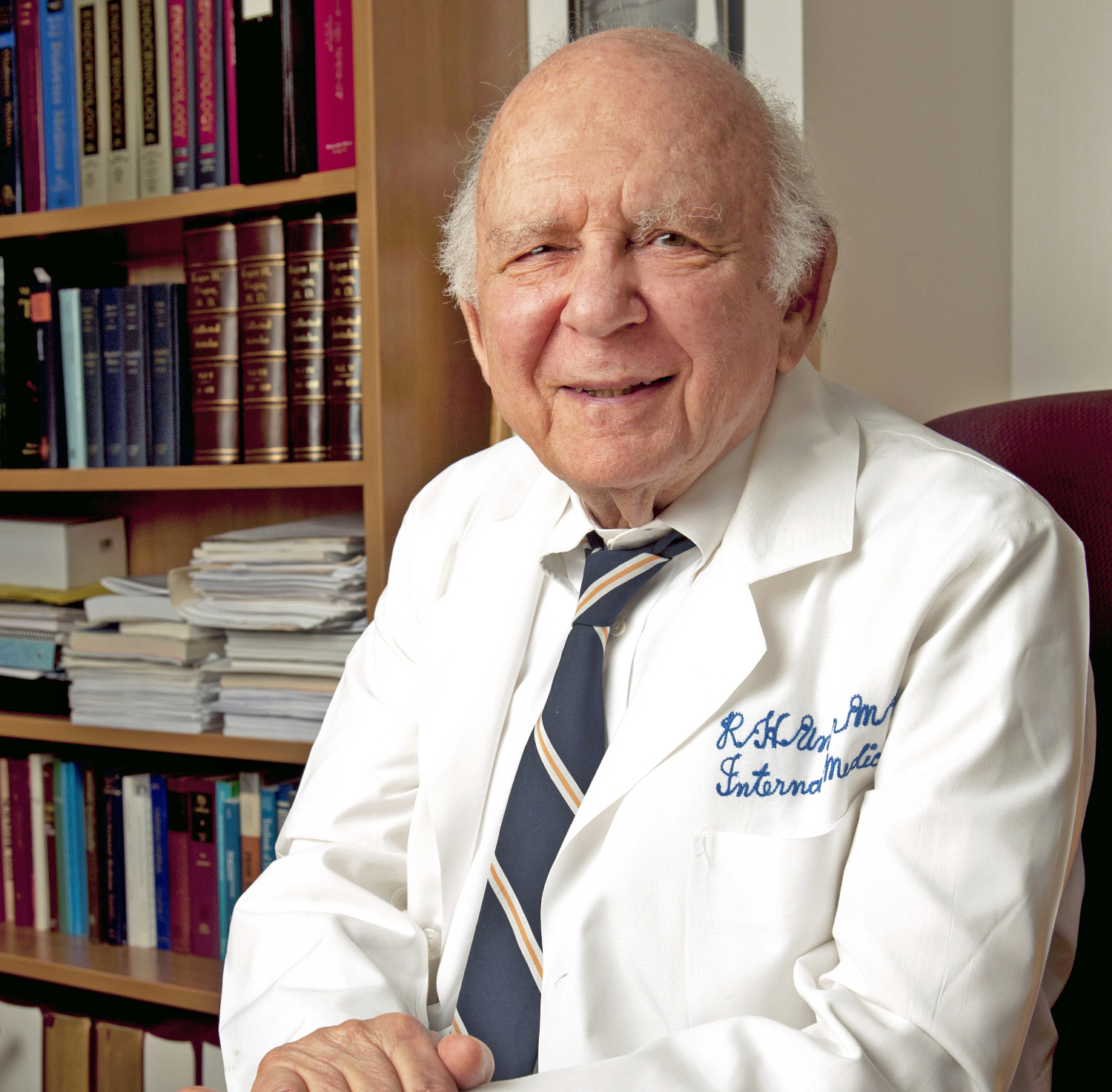
Roger Unger M.D.
Professor
We are saddened to share news of the passing of our esteemed colleague Roger H. Unger, M.D., former Professor of Internal Medicine and, for more than two decades, Director of the Touchstone Center for Diabetes Research. His death represents a great loss for the entire UT Southwestern community, and we offer our sincerest condolences to Dr. Unger’s family.
Dr. Unger was a visionary endocrinologist who helped shape research and clinical practice in the field for more than 60 years. His outstanding contributions in endocrinology and metabolism set the foundation for many important discoveries in these areas. He was at the forefront of identifying the essential role of glucagon in the pathogenesis of diabetes, and he introduced the concept of lipotoxicity, the process by which an over accumulation of fat products, such as ceramide and palmitate outside of fat cells, causes the tissue damage responsible for Type 2 diabetes and metabolic syndrome.
In 1959, Dr. Unger developed a test to measure concentrations of glucagon and established that glucagon was a true pancreatic hormone released in opposing partnership with insulin to maintain normal blood glucose (sugar) levels. In 1978, he helped show that the glucagon-suppressing hormone somatostatin normalized glucose levels of Type 1 diabetic patients. More recent studies in his lab have demonstrated that blood glucose elevations cannot occur without abnormally high levels of glucagon.
In recognition of his seminal scientific discoveries aimed at defining the interrelationships among obesity, diabetes, and metabolic syndrome, Dr. Unger received numerous national and international recognitions. He was elected to the National Academy of Sciences in 1986 and to the American Academy of Arts and Sciences in 1994. He received the Rolf Luft Award in 2014 from the Karolinska Institutet, the prestigious Swedish medical university that is also home to the Nobel Assembly. Winner of the 1964 Lilly Award from the American Diabetes Association (ADA), Dr. Unger went on to receive the highest awards of the ADA, the European Association for the Study of Diabetes, and The Endocrine Society – the Banting Medal (1975), the Claude Bernard Memorial Medal (1980), and the Fred Conrad Koch Award (1983), respectively. He also held honorary degrees from the Universities of Liege and Geneva.
As a member of the UT Southwestern faculty in the Department of Internal Medicine from 1956 until his retirement this past July, Dr. Unger was the first Director of the Touchstone Diabetes Center, serving in that role from 1986 to 2007, and he held the Touchstone/West Distinguished Chair in Diabetes Research.
Dr. Unger’s leadership at UT Southwestern had a profound and lasting influence across the University. Today, UT Southwestern is widely recognized as a world leader in the study and treatment of diabetes and related endocrine disorders. His efforts laid the foundations that have eventuated in recognition of UT Southwestern as one of the nation’s leading hospitals for diabetes and endocrinology care.
Those fortunate to have collaborated with Dr. Unger will recall that his passion for science was balanced by his sense of humor and genuine interest in their lives outside of the UTSW campus. While his legacy will live on through the institution’s ongoing research in endocrinology, he will be deeply missed.
Daniel K. Podolsky, M.D.
President, UT Southwestern Medical Center
W.P. Andrew Lee, M.D.
Executive Vice President for Academic Affairs and Provost
Dean, UT Southwestern Medical Center
